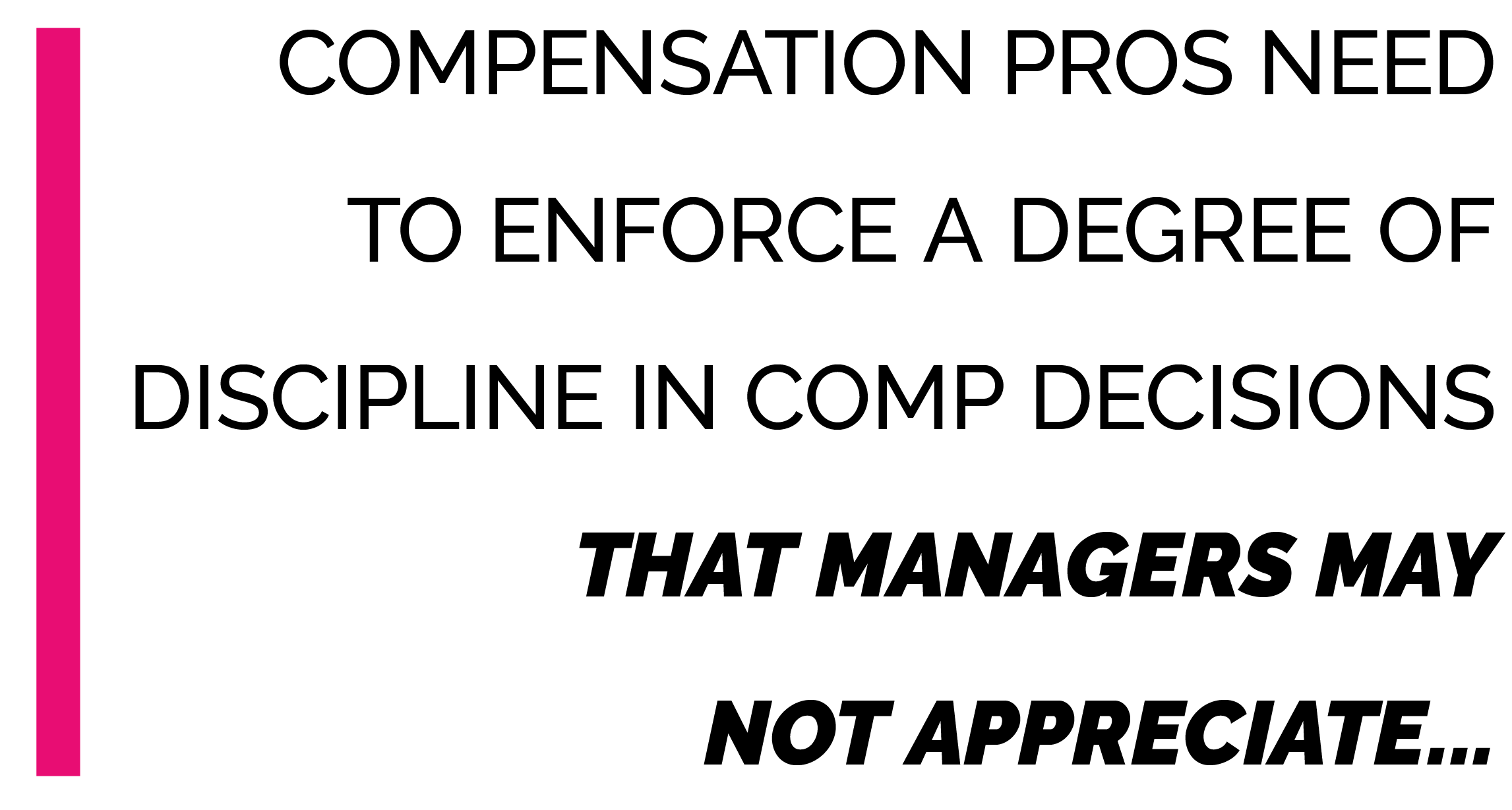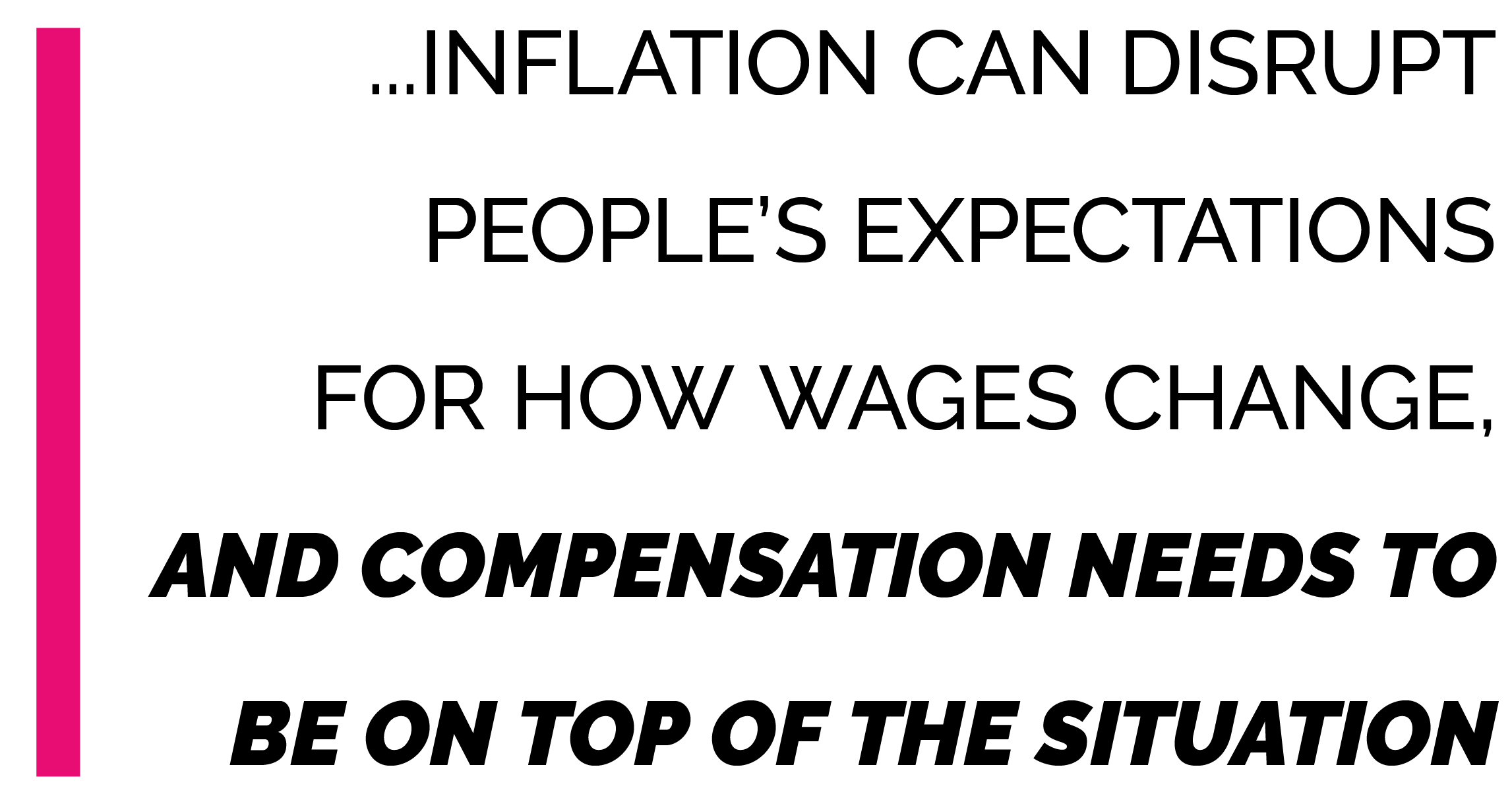
This is the third article in an ongoing series by David Creelman about redesigning compensation planning to acquire and retain top performers. This week’s article is about inflation and compensation planning. To catch up on our previous discussion, read the second article by clicking here.
Few compensation professionals in North America and Europe have experienced a period of wage inflation like the one we are experiencing now. Over the past 20 years, the inflation rate in the US has never exceeded 4%. Prior to the 21st century, however, the country experienced much higher inflation. For example, in the late 1970s, inflation in the US often exceeded 10% a year. Compensation professionals need to prepare for the possibility that we are once again entering an era of high inflation.
How Inflation Can Help a Compensation Professional
On the whole, wage inflation can make the job of the compensation professional easier for two reasons. First, it allows them to make a greater difference in merit awards between average and high performers. In times of low inflation, the average merit increase might be 2%, meaning that average performers get a 2% increase while above-average performers get perhaps 3%. Being an above-average performer, even over a number of years, won’t make that much difference to your salary. On the other hand, in times of high inflation, with perhaps an average wage increase of 10% a year, you can have a sizable difference in merit increments for average and above-average performers.
Similarly, high inflation makes it easier to move compensation down relative to the market as a whole. If you were paying 10% above what you determined was the appropriate market rate and inflation was only 2%, then even if you froze pay, it would take years for the market to catch up. On the other hand, when wage inflation is high, you can correct the policy line relative to the market in just a few years.
How Inflation Creates Headaches for Compensation Professionals
The main headache in a high inflation environment shows up when you try to hire new employees. New employees will want to be paid at today’s market rate. If you haven’t been diligently adjusting current employees’ pay to keep up with the market, one of two things will happen:
1. Good candidates will turn down your offer
2. You’ll pay new hires too much relative to existing hires
The challenge with these problems is that they happen one at a time. If someone turns down your offer, you can’t know with certainty why they declined. Declining in itself doesn’t prove that your pay is too low. If you overpay a new employee relative to existing hires, you can always talk yourself into believing that they deserve it because they are so good, or else that you just need to do it and internal equity be damned.
This is where the compensation pro needs to enforce a degree of discipline in compensation decisions that managers may not appreciate. Leaders may be reluctant to keep up with wage rates moving up more rapidly than they are used to. Leaders may also be willing to sacrifice internal equity just this once because they desperately need a job filled. Compensation pros need to insist that the organization sticks with a pay policy that is externally competitive and internally equitable even when it causes short-term pain. Abandoning either competitiveness or equity will cause real problems in the long run – an ounce of prevention is worth a pound of cure.

What to Do
Iggy Qian, who ran Total Rewards for Bayer in Shanghai, shares some advice for managing compensation in times of high inflation. His first suggestion is that you need to keep a very close eye on market data, possibly checking market rates more than once a year. You can’t rely on government data on inflation, which often lags behind wage inflation. So when the CFO says, “Government data shows inflation is only x%,” you need to be able to say, “Yes, but the market data clearly shows wage inflation is y%, and that’s the only number that matters in attracting and retaining talent.”

Qian also points out that while it’s worth listening to what your recruiters say about what pay levels are needed to attract talent, they will always say pay levels are not high enough, so take their feedback with a grain of salt. The number of rejected offers is an important number, and if that number is going up, then it is worth looking more closely to see if it is a wage problem.
Finally, Qian says that, in China, they would do an additional mid-year pay review for key employees. You don’t want to lose key people because your wage policy slightly lags behind the market.
In the end, compensation always comes down to discipline, staying alert to market conditions, and an insistence on doing the right thing. A time of high inflation can disrupt people’s expectations for how wages change, and compensation needs to be on top of the situation so that pay practices don’t go off the rails. ⬤

